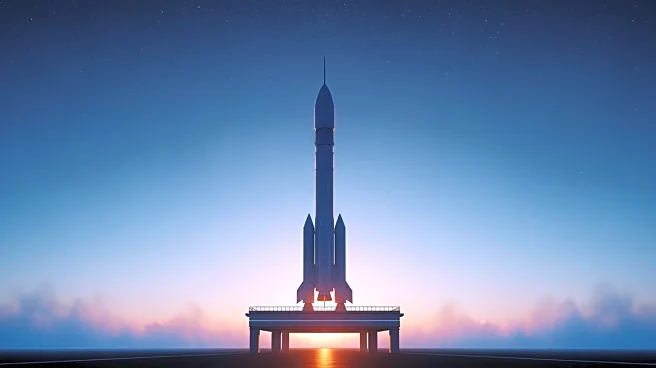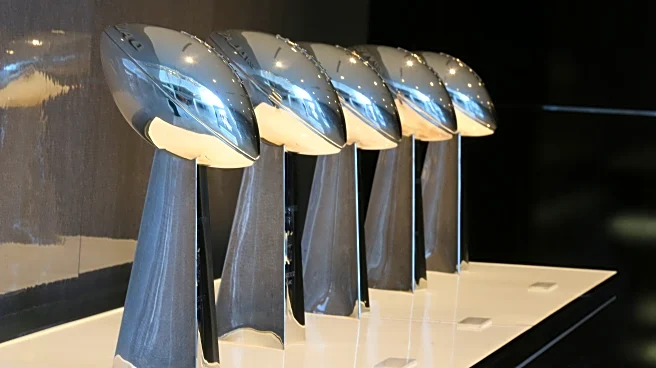What's Happening?
Blue Origin has launched its New Glenn rocket carrying twin NASA spacecraft destined for Mars. This marks the second flight of the New Glenn rocket, which successfully deployed the Mars orbiters after
overcoming weather and solar storm delays. The rocket's booster was recovered after landing upright on a barge, a significant achievement in reducing launch costs through reusability. The Mars orbiters, named Escapade, will study the Martian atmosphere and magnetic fields, providing insights into the planet's climate history and radiation environment. The mission is part of Blue Origin's efforts to support NASA's lunar and Martian exploration goals.
Why It's Important?
The successful launch and booster recovery of the New Glenn rocket highlight Blue Origin's progress in the space industry, particularly in developing cost-effective and reusable launch systems. This achievement enhances Blue Origin's competitiveness against SpaceX, which has set the standard for reusable rockets. The Mars mission, managed by UC Berkeley, aims to deepen our understanding of Mars' atmospheric processes and inform future human exploration. By reducing launch costs, Blue Origin can offer more affordable access to space, benefiting scientific research and commercial ventures. The mission also aligns with NASA's broader objectives of returning humans to the Moon and eventually reaching Mars.
What's Next?
The Escapade mission will spend a year near Earth before heading to Mars, with arrival expected in 2027. Blue Origin plans to continue developing its New Glenn rocket and lunar lander capabilities, aiming to support NASA's Artemis program. The company is also preparing for a prototype lunar lander mission. As Blue Origin refines its technology, it may secure additional contracts and partnerships, further establishing its role in space exploration. The success of the New Glenn rocket could lead to increased investment and interest in Blue Origin's future projects.











